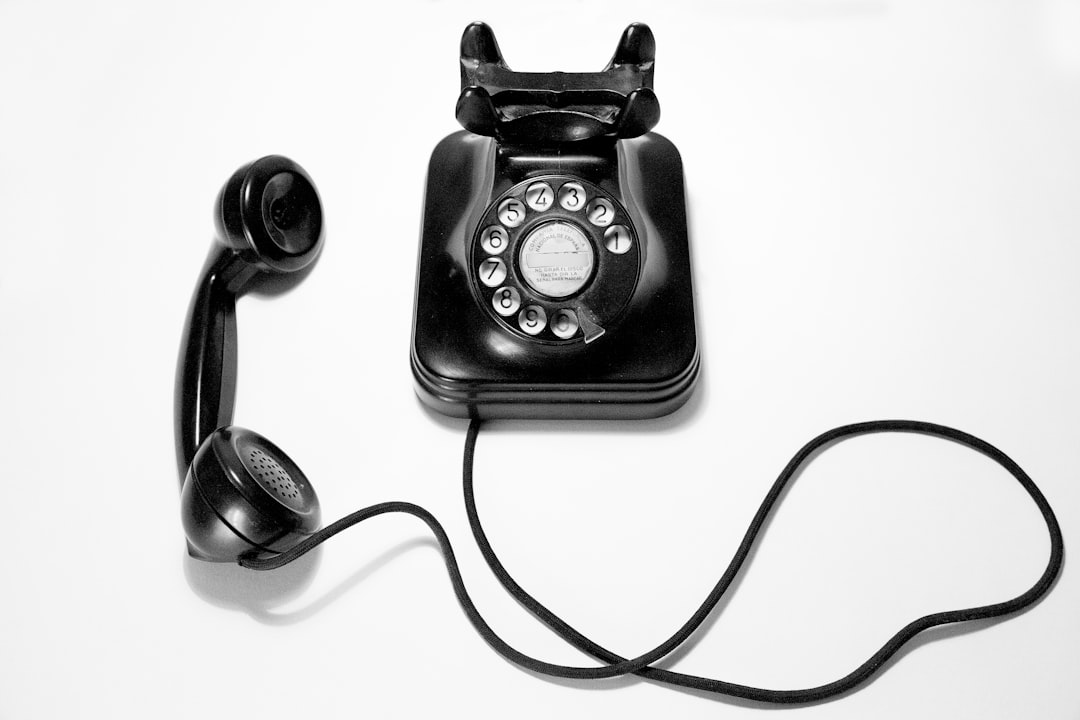Autodialers are widely adopted by law firms in Louisiana for marketing and client communication, but their usage is subject to complex legal regulations, primarily governed by the Telephone Consumer Protection Act (TCPA), Louisiana's Telemarketing and Consumer Fraud Act, and FCC guidelines. Law firms must obtain explicit consent, provide opt-out options, and ensure data privacy to avoid hefty fines, reputational damage, and breaches of client information. In Lafayette, Louisiana, consumer protection laws rigorously regulate autodialer usage, emphasizing prior express consent and do-not-call lists. To remain compliant, law firms should adopt proactive measures including robust internal policies, staff training, call tracking systems, and staying updated on regulatory developments.
In the digital age, autodialers have become essential tools for law firms in Louisiana, enhancing client outreach. However, their use navigates a complex legal landscape, with potential pitfalls and regulations. This article explores common legal issues surrounding autodialers, focusing on Lafayette. We delve into consumer protection laws, analyze challenges faced by law firms, and provide best practices to ensure compliance. Understanding the legal implications is crucial for auto dialer implementation in Louisiana-based law firms.
Understanding Autodialers and Their Legal Implications in Louisiana

Autodialers, also known as automated dialing systems or ATDS, have become a ubiquitous tool for businesses across various industries, including law firms in Louisiana. These technologies automate the process of making phone calls, enabling efficient communication with clients and prospects. However, the legal implications surrounding their use are complex and multifaceted. In Louisiana, the state’s telemarketing laws and regulations provide a framework for governing autodialers to protect consumers from unsolicited calls and ensure fair business practices.
Law firms utilizing autodialers must navigate a series of legal considerations to remain compliant. This includes obtaining prior express consent from recipients before making automated calls, providing clear and concise information about the purpose of the call, and allowing individuals to opt-out or stop future calls. Violations of these regulations can result in significant fines and damage to a firm’s reputation. Understanding the specific laws governing autodialers, such as those enforced by the Federal Communications Commission (FCC) and state regulators, is crucial for law firms operating in Louisiana to ensure their marketing and communication strategies remain legal and effective.
Common Legal Challenges Faced by Law Firms Using Autodialers

Many law firms in Louisiana have adopted autodialers as a standard communication tool, aiming to streamline their marketing and client outreach strategies. However, this technology also presents several legal challenges that must be navigated carefully. One of the primary concerns is compliance with the Telephone Consumer Protection Act (TCPA), which restricts the use of automated dialing systems for telemarketing purposes without prior explicit consent. Law firms using autodialers risk facing TCPA violations if their calls are not properly targeted and consented to, leading to significant financial penalties and damage to their reputation.
Additionally, state-specific regulations in Louisiana regarding unsolicited telephone communications further complicate matters for law firms utilizing autodialers. The state’s laws often have stricter guidelines on do-not-call lists and the content of automated messages, necessitating a nuanced understanding of both federal and local legal frameworks. Law firms must also be vigilant about data privacy concerns, as autodialer systems collect and process significant amounts of customer data, requiring robust security measures to protect sensitive information from breaches or misuse.
Consumer Protection Laws and Autodialer Use in Lafayette

In Lafayette, consumer protection laws play a crucial role in regulating the use of autodialers by law firms. These laws are designed to safeguard consumers from unsolicited phone calls and ensure fair practices in telemarketing. Louisiana has specific regulations that govern the behavior of autodialing campaigns, particularly regarding consent and do-not-call lists. Law firms utilizing autodialers must adhere to these rules to avoid legal repercussions.
The state’s consumer protection laws strictly enforce the necessity of prior express consent from recipients before initiating automated phone calls. This means law firms must obtain explicit permission from individuals before using autodialers, or they risk violating privacy rights and facing lawsuits. Additionally, Louisiana residents can register their numbers on do-not-call lists, which further restrict autodialer activity, ensuring a quieter and more controlled communication environment for consumers.
Best Practices for Law Firms to Navigate Autodialer Regulations in Louisiana

To navigate the complex legal landscape surrounding autodialers in Louisiana, law firms should adopt a proactive approach and implement best practices. Firstly, ensuring compliance with the state’s Telemarketing and Consumer Fraud Act is paramount. This includes obtaining explicit consent from recipients before making automated calls, providing an opt-out mechanism during each call, and adhering to restrictions on the number of calls made within a certain period. Law firms should also establish robust internal policies detailing the proper use of autodialers, including data privacy protocols to safeguard client information.
Additionally, staying informed about ongoing regulatory developments is crucial. Regularly reviewing updates from the Louisiana Attorney General’s Office and industry publications can help law firms anticipate changes in autodialer regulations. Implementing call tracking systems and training staff on compliance procedures are further steps that demonstrate a commitment to ethical practices. By embracing these best practices, Louisiana-based law firms can effectively manage autodialer-related legal issues while maintaining client trust and satisfaction.






